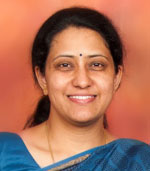Non-State Armed Groups in South Asia

About the Book
This book is a comprehensive survey of a large number of non-state armed groups in South Asia. It brings together rich and rigorous contributions by scholars in India and reflects their deep understanding not only of the groups, but also the socio-economic and political environs in which they sustain themselves. More importantly, the book is a contribution to the field of research on terrorism. Going beyond a mere profiling of groups, the method of structured focused comparison provides an opportunity to make some contingent generalizations regarding non-state armed groups in the region. The book will be useful for further research on non-state armed violence, including- but not limited to-testing the validity of these generalisations, providing a comparative perspective on select groups and studying more cases to enrich the generalisations.
About the Editor
Dr. Arpita Anant is Associate Fellow at the Institute for Defence Studies and Analyses, New Delhi. She holds a Ph.D. in International Politics from the Jawaharlal Nehru University, New Delhi, for her thesis on ?Group Rights in the Indian and International Discourses?. She is a recipient of the ICSSR Doctoral Fellowship and the Commonwealth Visiting Fellowship for the year 2001-02. Her current research interests include internal security in India with a special focus on Jammu and Kashmir and armed conflicts in Asia.
Contents
Foreword
Acknowledgements
About the Contributors
1. Introduction [Download Introduction]
— Arpita Anant
Part I: The Nature of the Challenge
2. The Persistence of Identity Conflicts in South Asia: New Dynamics and the Search for New Explanations
— Ajay Darshan Behera
3. Some Socio-economic Aspects of the Maoist Insurgency in India
— Sudeep Chakravarti
4. The Threat of Nuclear Terrorism in Asia
— Reshmi Kazi
Part II: The Case Studies
GROUPS BASED ON ETHNIC MOTIVATIONS
5. Armed Conflict in Manipur: The Case of UNLF
— Amarjeet Singh
6. Dima Halam Daogah: Fire in the Abandoned Hills
— Jaideep Saikia
7. In Guerrilla Zone: The National Socialist Council of Nagalim—Isak-Muivah
— Namrata Goswami
8. The United Liberation Front of Asom (ULFA): Liberating Force or to be Liberated?
— Nani Gopal Mahanta
9. National Democratic Front of Bodoland (NDFB): Continuing Stalemate
— Shubhrajeet Konwer
10. Liberation Tigers of Tamil Eelam: Crouching Violence; Hidden Peace
— N. Manoharan
GROUPS BASED ON LEFT-WING MOTIVATIONS
11. Profiling India’s Maoists: An Overview
— P.V. Ramana
12. Naxalism in Chhattisgarh
— Medha Bisht
13. Maoist Insurgency in East Indian States: Issues and Mobilization
— Nihar Nayak
GROUPS BASED ON RELIGIOUS MOTIVATIONS
14. Hizb-ul-Mujahideen: An “Indigenous” Armed Group
— Arpita Anant
15. Harkat-ul-Mujahideen (Movement of Holy Warriors)
— Kanchan Lakshman
16. Jaish-e-Mohammed
— Priyanka Singh
17. Lashkar-e-Toiba
— D. Suba Chandran and Rekha Chakravarthi
18. Harkat-ul Jihad-al Islami: Organization, Dynamics and the Potential for Subversion
— Bibhu Prasad Routray
19. Radical Islamic Groups in Bangladesh: The Case of Jama’atul Mujahideen Bangladesh
— Smruti S. Pattanaik
20. The Taliban
— Shanthie Mariet D’Souza
Part III: Countering Non-State Violence in India
21. The Rise, Fall and Rise of Insurgencies in India’s North-East
— Bibhu Prasad Routray
22. Lessons from India’s Counterinsurgency Experience in the North East
— Vivek Chadha
23. Rise of Naxalism and its Implications for National Security: A Political, Security and Socio-economic Campaign
— E.N. Rammohan
24. The Rise and Decline of Armed Non-State Actors: The Kashmir Experience
— D. Suba Chandran
25. Changing Dynamics of Terrorism in Jammu and Kashmir
— S.K. Saini
Part IV: Conclusion
26. Non-State Armed Groups in South Asia: A Preliminary Structured Focused Comparison
— Arpita Anant
Index
Order Hard Copy
Please email us at publication [at] idsa.in or call +91-11-2671 7983 (Ext. 7303)









